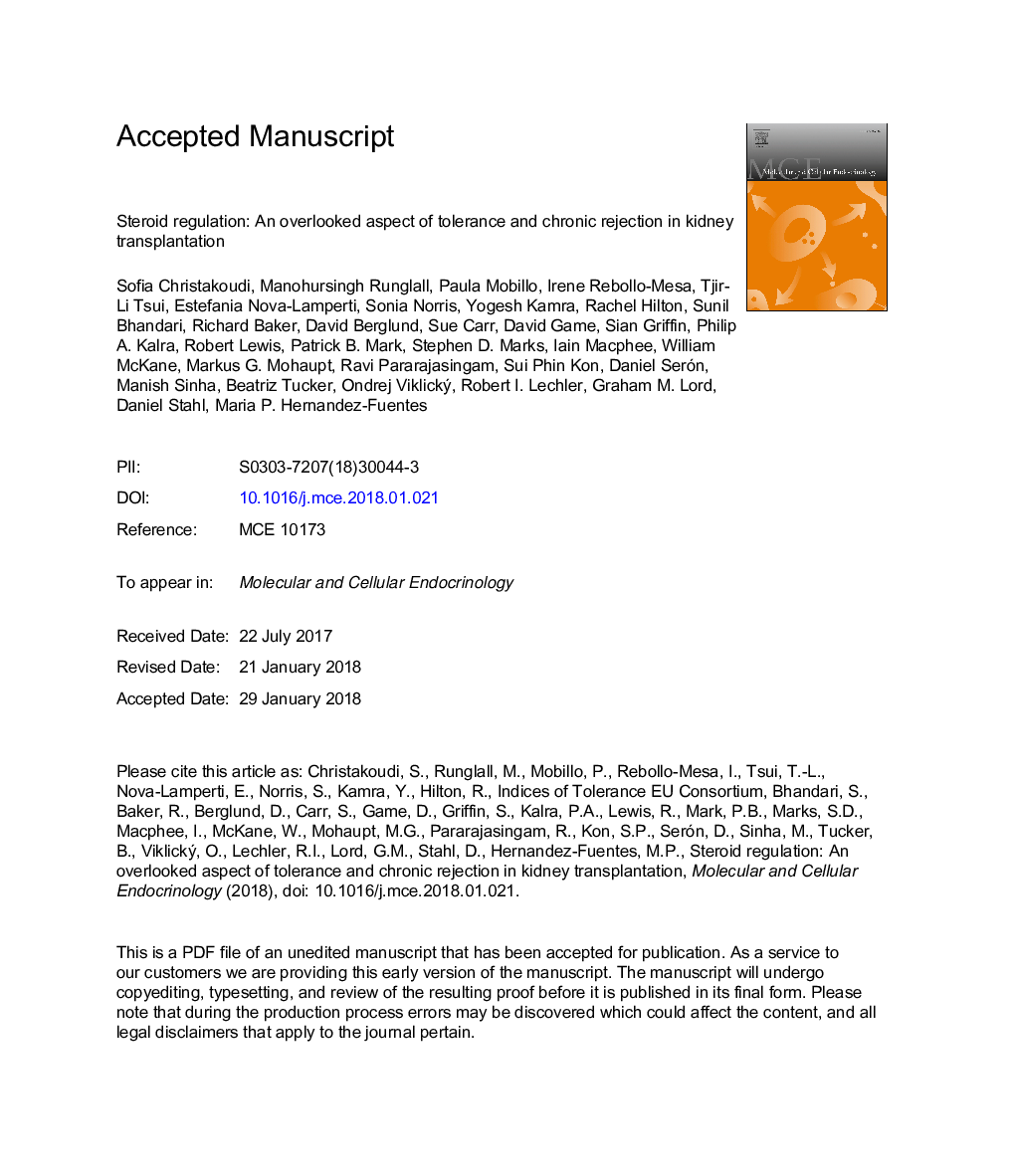| Article ID | Journal | Published Year | Pages | File Type |
|---|---|---|---|---|
| 8476336 | Molecular and Cellular Endocrinology | 2018 | 43 Pages |
Abstract
Steroid conversion (HSD11B1, HSD11B2, H6PD) and receptor genes (NR3C1, NR3C2) were examined in kidney-transplant recipients with “operational tolerance” and chronic rejection (CR), independently and within the context of 88 tolerance-associated genes. Associations with cellular types were explored. Peripheral whole-blood gene-expression levels (RT-qPCR-based) and cell counts were adjusted for immunosuppressant drug intake. Tolerant (nâ¯=â¯17), stable (nâ¯=â¯190) and CR patients (nâ¯=â¯37) were compared. Healthy controls (nâ¯=â¯14) were used as reference. The anti-inflammatory glucocorticoid receptor (NR3C1) and the cortisol-activating HSD11B1 and H6PD genes were up-regulated in CR and were lowest in tolerant patients. The pro-inflammatory mineralocorticoid gene (NR3C2) was downregulated in stable and CR patients. NR3C1 was associated with neutrophils and NR3C2 with T-cells. Steroid conversion and receptor genes, alone, enabled classification of tolerant patients and were major contributors to gene-expression signatures of both, tolerance and CR, alongside known tolerance-associated genes, revealing a key role of steroid regulation and response in kidney transplantation.
Keywords
CNIGambitKTR11β-HSDNR3C1T-regHprtppifFOXP3H6PD11β-hydroxysteroid dehydrogenaseTVSPNOCIQRRT-qPCRNR3C2C1sCVSPBMCStat1regulatory T-cellsToleranceKidney transplant recipientschronic rejectionperipheral blood mononuclear cellsinterquartile rangeCalcineurin inhibitorsquantitative real-time reverse transcriptase polymerase chain reactionTransplantationKidneyhealthy controlsCISHGilz
Related Topics
Life Sciences
Biochemistry, Genetics and Molecular Biology
Cell Biology
Authors
Sofia Christakoudi, Manohursingh Runglall, Paula Mobillo, Irene Rebollo-Mesa, Tjir-Li Tsui, Estefania Nova-Lamperti, Sonia Norris, Yogesh Kamra, Rachel Hilton, Sunil Bhandari, Richard Baker, David Berglund, Sue Carr, David Game, Sian Griffin,
